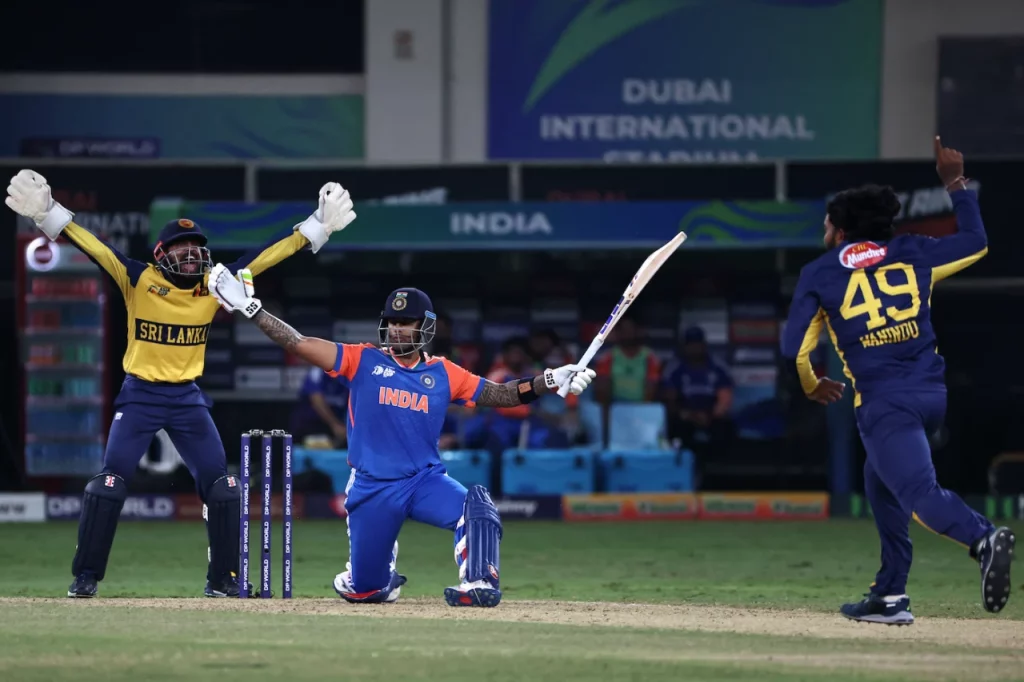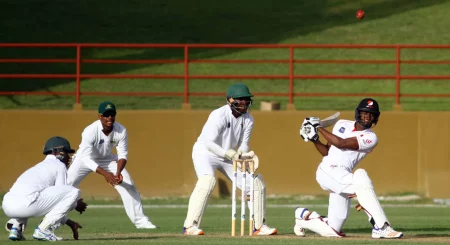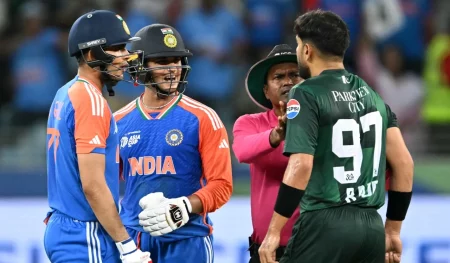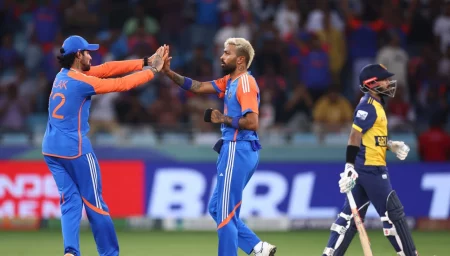Sri Lanka’s Asia Cup journey has seesawed violently, and not in the way they would have fancied. They ended the group stages unbeaten and followed it with an uninspiring Super Fours campaign, losing all three fixtures. Their journey culminating in a defeat just as unbridled felt like the right end. Having conceded 202 runs against the rampant Indian side, they were set for another crushing defeat, which seemed certain with Kusal Mendis falling for a duck in the first over.
However, Pathum Nissanka and Kusal Perera paired up to give India equal payback, scoring a 127-run partnership off 70 balls. Even though Perera fell in the thirteenth, Nissanka took the game to the last over, by which time Sri Lanka were 12 runs away. Those 12 runs became more daunting than any before. Nissanka departed on the first ball of the last over, after which his team only managed to level India’s score in the designated time. Facing the last ball with three runs needed, Dasun Shanaka drove towards long on and ran with the intention of completing a couple at any cost. It would have been a mistake had Kuldeep Yadav not misfielded. Adding to that, Harshit Rana faltered in collecting at the non-striker’s end, though Shanaka, diving to reach the crease at the batter’s end, remained unaware of the chance of a third run.
All these fumbles meant a Super Over was enforced, but Sri Lanka’s juju could not take them further. After a few more minutes of drama, they managed two runs before losing their two wickets. India needed only one ball to achieve the target.
“I would’ve preferred to finish games in normal time,” Sri Lanka’s head coach Sanath Jayasuriya said at the post-match press conference. “No captain or coach wants to go to a Super Over. Unfortunately, Dasun missed completing the third run. But no, there’s no mental block against India. Our batting line-up is strong, and we’ve given them confidence. Chasing 200 (203) is never easy, but we almost did it, which shows the quality we have.”
Jayasuriya praised Nissanka’s genius in taking on the intimidating task and bringing Sri Lanka to a commanding position against all odds. Nissanka’s quick adaptation to the limited-over formats has been a weight off Sri Lanka’s shoulders, who have struggled to adjust to the pace of white-ball cricket of late. Before the Super Fours began, the top-order batter spoke of Jayasuriya giving him the room to err while developing his game.
“When you’re chasing 202 (203), you have to keep finding boundaries,” Jayasuriya said. “Their partnership was the key. The momentum shifted when we started losing wickets. That’s natural in a chase because someone has to take risks. Sadly, Pathum got out at the wrong time, and later on, the ball began to turn more. Still, it was a very good game of cricket.
“Kusal is one of the best players of spin in our team. He played that role well again, though I’d have liked him to bat longer. Both took calculated risks, and when they wanted boundaries, they executed them. Pathum also had a bit of a hamstring issue recently but still gave 100% for the team, which shows his commitment.”
Sri Lanka’s bad run in the tournament started with their defeat against Bangladesh, where they failed to make the most of Dubai’s batting-friendly surface. The defeat knocked the stuffing out of them, which was visible against Pakistan and India in the next games. But despite a dismal end, Jayasuriya said this team has a trick up its sleeve for the future.
“In T20 cricket, assessing conditions quickly is everything,” Jayasuriya said. “In Abu Dhabi, for example, the first-round pitches had pace and bounce, but in the second round, things changed, and we were too slow to adapt. That cost us. The disappointment was the Bangladesh match in the Super Four – 168 on that pitch was a good score, but we didn’t bowl well enough to defend it. Against Pakistan, we didn’t assess the conditions [in Abu Dhabi] quickly enough, and were late to adapt.
“Today, India played very well to get over 200. Our boys showed they’re capable of chasing that, but again we just fell short. Apart from that Bangladesh game, I’m fairly satisfied, though disappointed not to reach the final. We have the batting and bowling quality. The key is to execute plans according to conditions and opposition. If we do that consistently, this team can go very far.”



